#german national monuments
Text
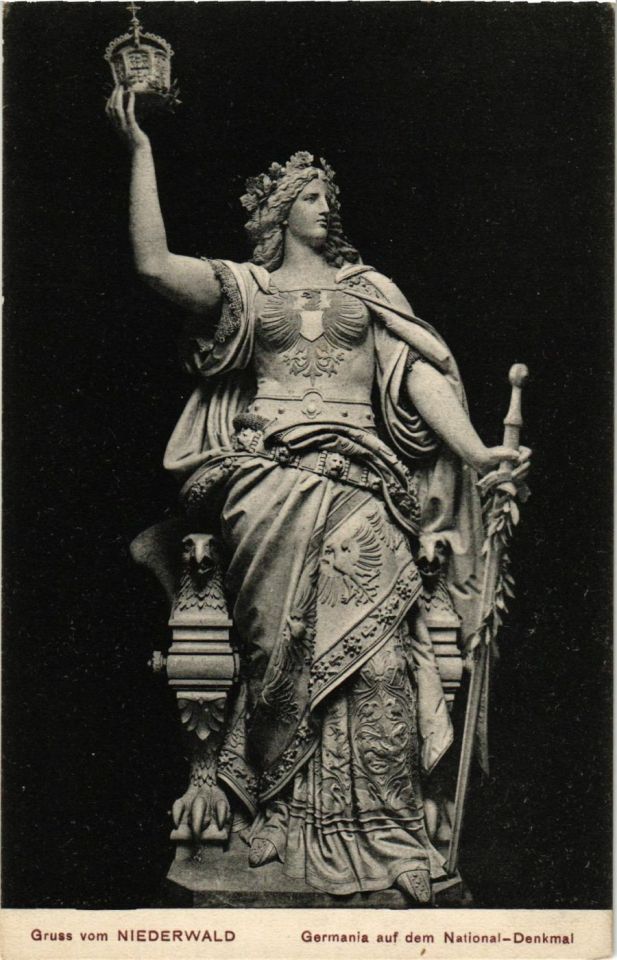
Niederwald National Monument in Rüdesheim am Rhein, Hesse, Germany
German vintage postcard
#vintage#tarjeta#old#rhein#briefkaart#postcard#germany#photography#niederwald#hesse#postal#carte postale#german#sepia#ephemera#historic#national#ansichtskarte#monument#rüdesheim#rdesheim#niederwald national monument#postkarte#postkaart#photo
32 notes
·
View notes
Text

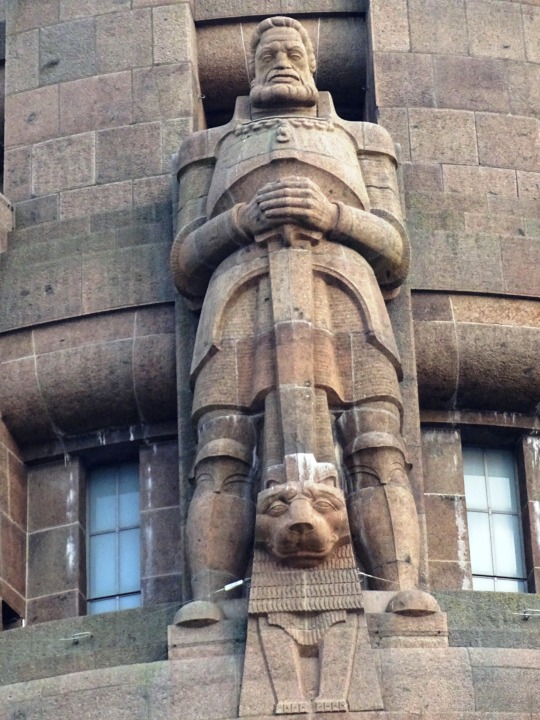
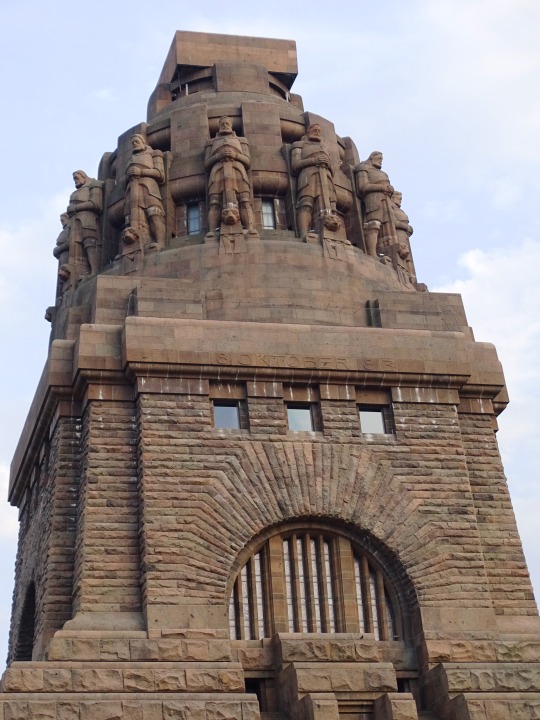
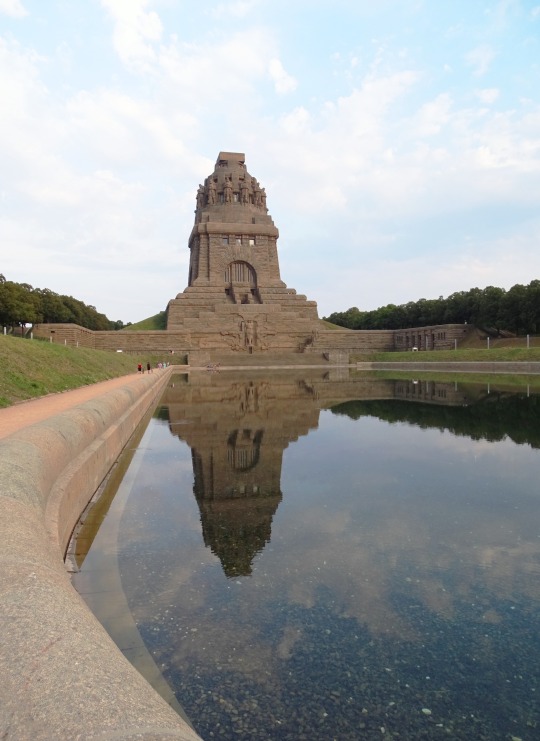
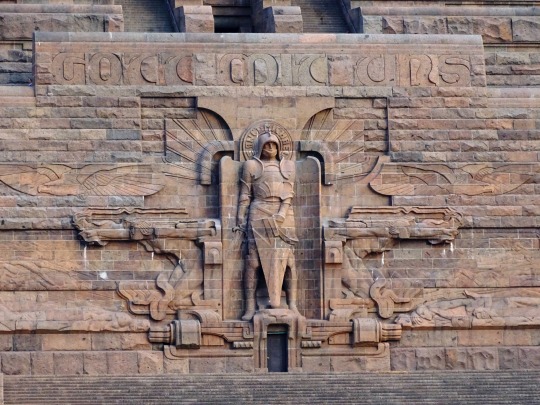
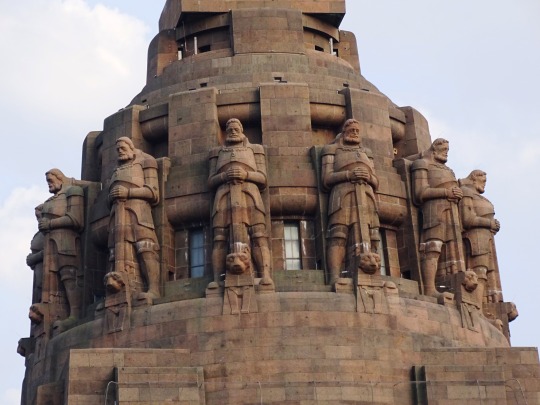
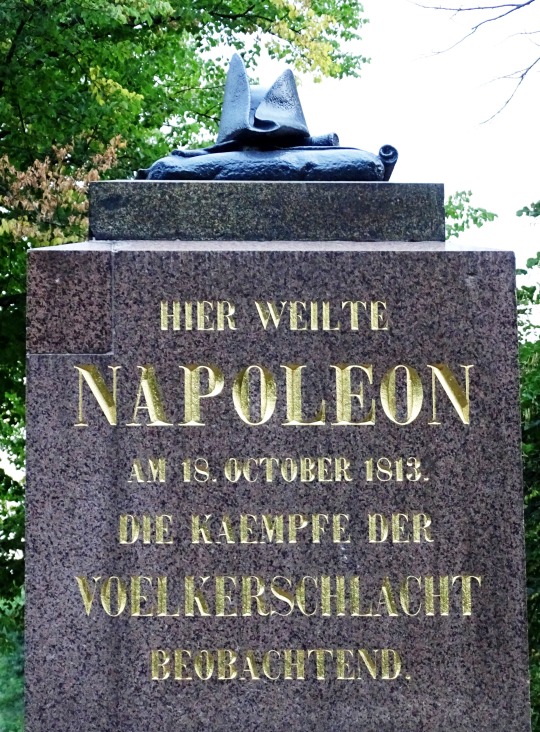



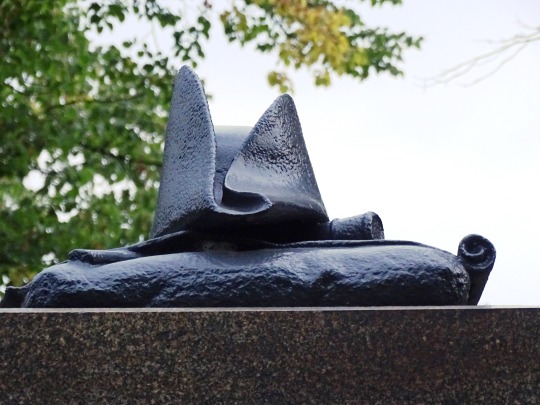
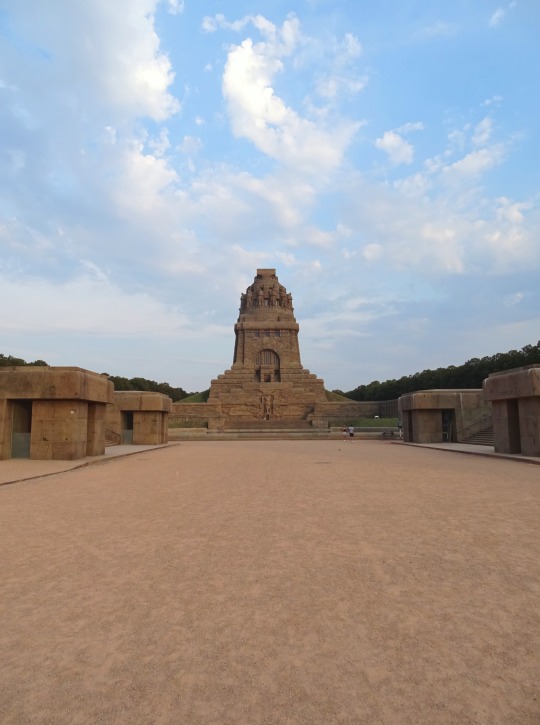



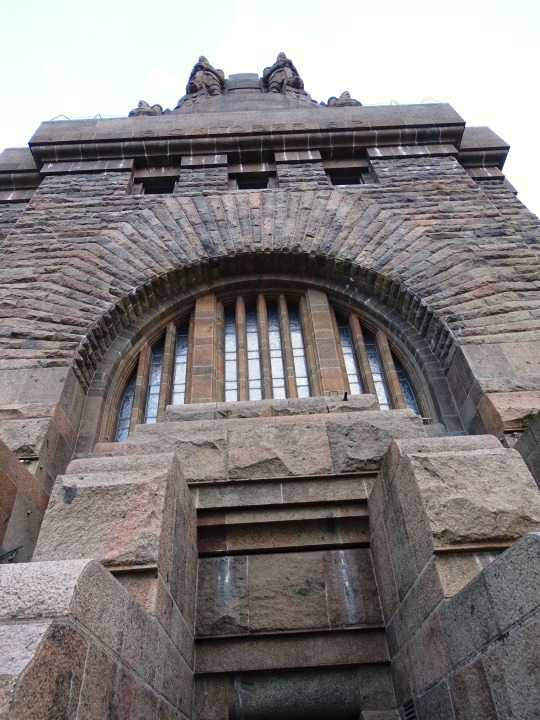

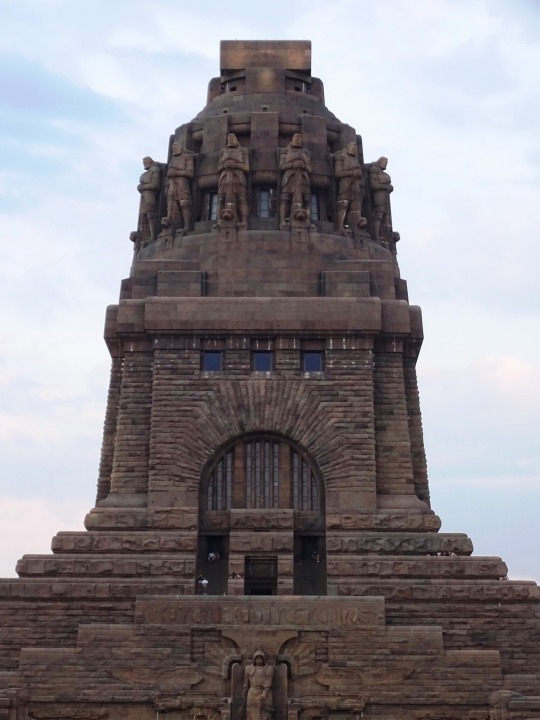

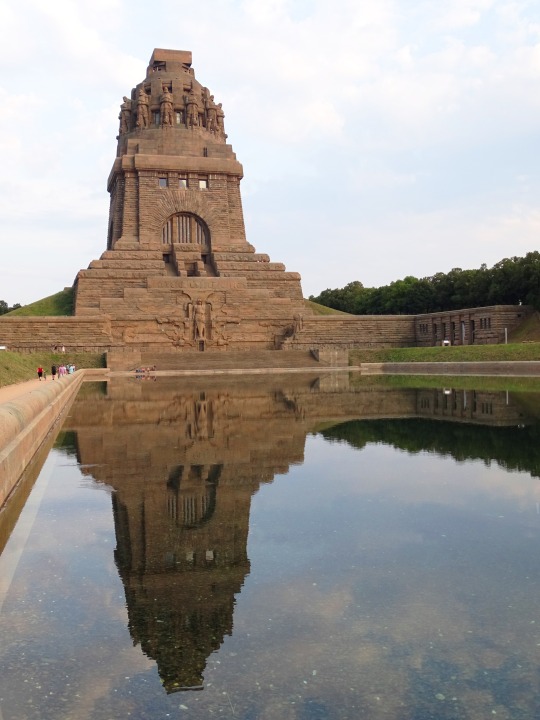
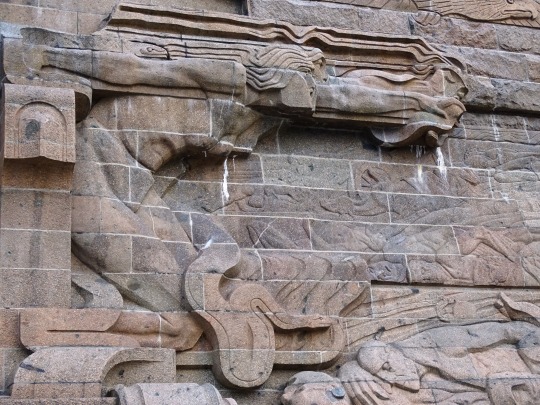
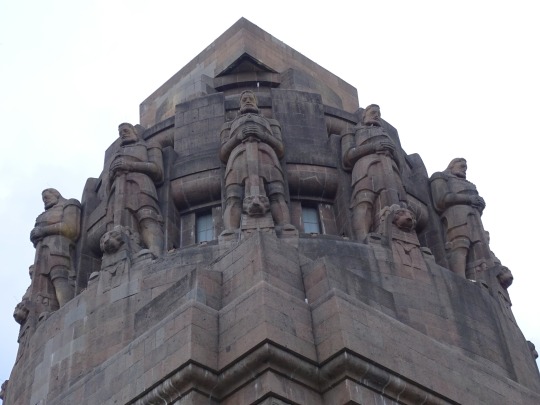
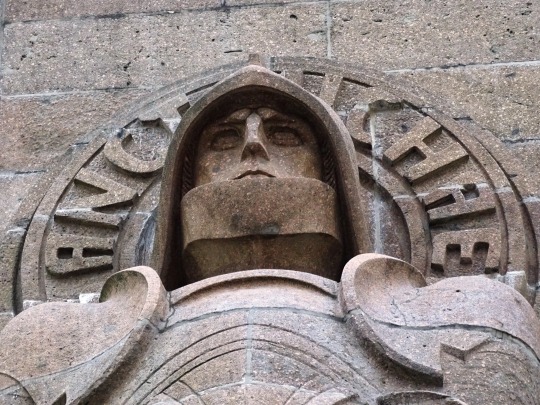
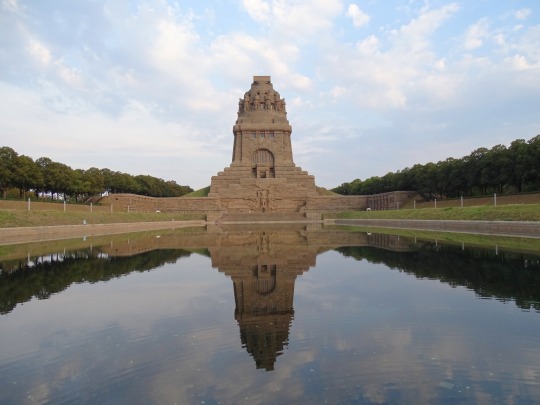
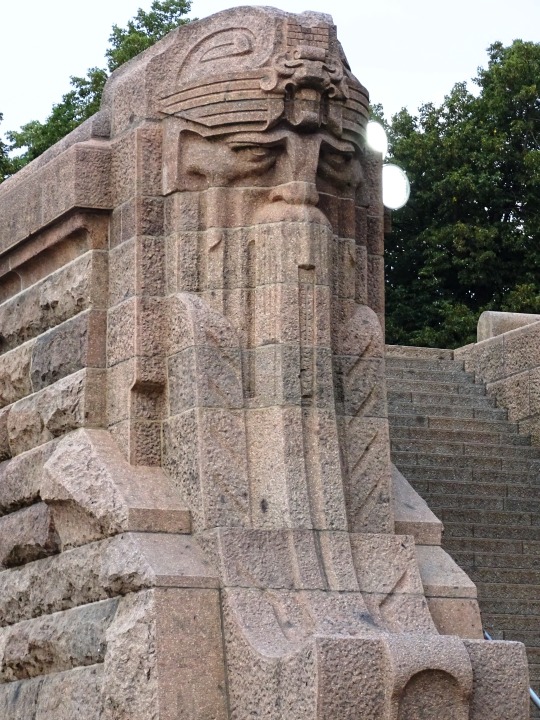
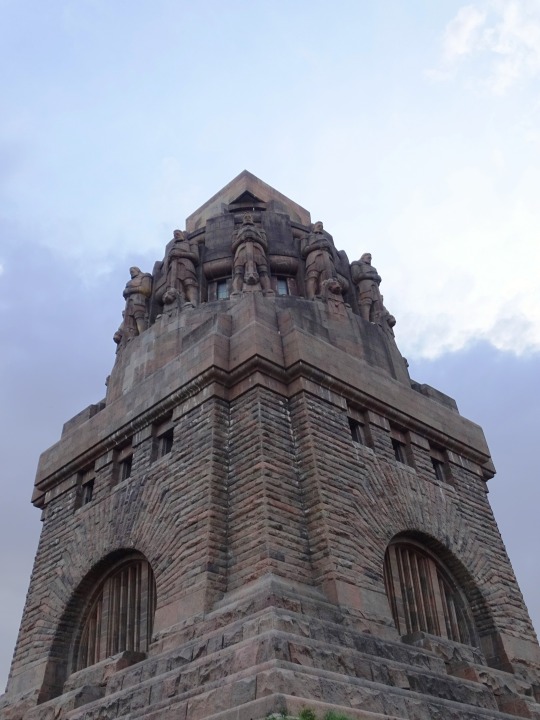


War of the Sixth Coalition: Napoleon was forced to retreat from Germany after the Battle of Leipzig on October 19, 1813.
#Napoleonstein#War of the Sixth Coalition#Napoleon#retreated#Leipzig#19 October 1813#210th anniversary#German history#Völkerschlachtdenkmal#Saxony#Sachsen#Deutschland#summer 2020#original photography#travel#vacation#cityscape#Bruno Schmitz#Monument to the Battle of the Nations#Franz Metzner#Reflecting Pool#tourist attraction#landmark
15 notes
·
View notes
Text
Photos from Carrizo Plain National Monument and the road out from it :)
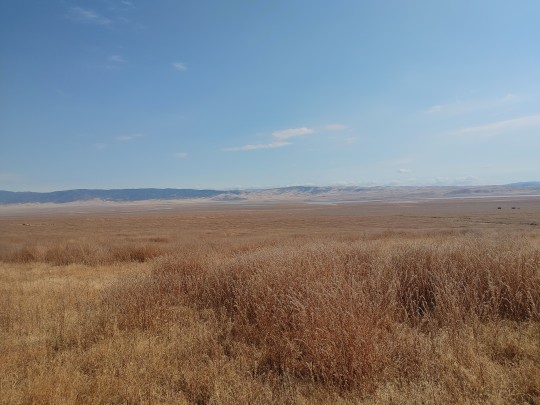

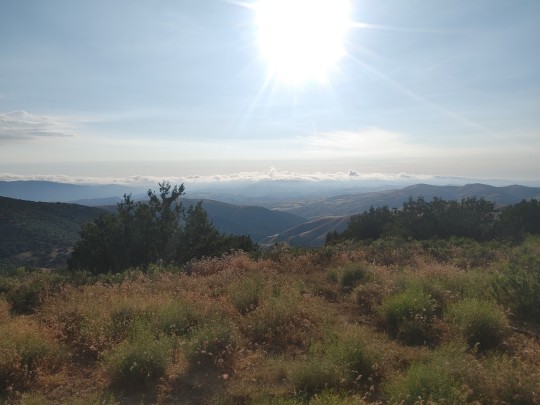





#hike#hiking#kinda lol we mainly drove around but did explore a few spots more#LOTS of lizards but didnt photgraph any#also the most WRATHFUL#and i mean WRATHFUL. gopher snake ive ever met omfg#german shepherd#california#central california#carrizo plain#carrizo plain national monument#national monument#home
3 notes
·
View notes
Text
Sound familiar?
"After the First World War, the map of Europe was re-drawn and several new countries were formed. As a result of this, three million Germans found themselves now living in part of Czechoslovakia.
When Adolf Hitler came to power, he wanted to unite all Germans into one nation.
In September 1938 he turned his attention to the three million Germans living in part of Czechoslovakia called the Sudetenland. Sudeten Germans began protests and provoked violence from the Czech police. Hitler claimed that 300 Sudeten Germans had been killed. This was not actually the case, but Hitler used it as an excuse to place German troops along the Czech border.
Things that happened in September 1938:
Sept 7. On instructions from Hitler, Konrad Henlein broke off negotiations with the Czech government. Allegations of Czech police brutality at Moravská Ostrava were used as an excuse
Sept 7. A famously controversial editorial appeared in The Times which recommended giving Hitler what he wanted because "the advantages to Czechoslovakia of becoming a homogenous State might conceivably outweigh the obvious disadvantages of losing the Sudeten German districts of the borderland."
Sept 13. French Prime Minister Édouard Daladier asked Neville Chamberlain (leader of Czechoslovakia) to make the best deal he could with Hitler.
Sept 20. The Czechoslovak government rejected the Anglo-French proposal in a note explaining that acceptance would mean that Czechoslovakia would be put "sooner or later under the complete domination of Germany."
Sept 20. Hitler met with the Polish ambassador Józef Lipski and told him that Germany would support Poland in a conflict with Czechoslovakia over Teschen. Hitler also said he was considering shipping Europe's Jews to a colony (Israel, a colony for Europe's displaced Jewish population would be established in 1948) and expressed hope that Poland would cooperate with such a plan. Lipski replied that if Hitler could solve the Jewish question, the Poles would build a monument to him in Warsaw
September 26. In the Berlin Sportpalast, Hitler made a speech threatening Czechoslovakia with war. "My patience is exhausted", Hitler declared. "If Beneš does not want peace we will have to take matters into our own hands.
Sept 27th. The French government announced that France would not enter a war purely over Czechoslovakia. Neville Chamberlain gave a radio address saying, "However much we may sympathize with a small nation confronted by a big and powerful neighbor, we cannot in all circumstances undertake to involve the whole British Empire in a war simply on her account. If we have to fight it must be on larger issues than that
Sept 27. President Franklin Roosevelt writes to German Chancellor Adolf Hitler regarding the threat of war in Europe. The German chancellor had been threatening to invade the Sudetenland of Czechoslovakia and, in the letter, his second to Hitler in as many days, Roosevelt reiterated the need to find a peaceful resolution to the issue.
Sept 29. German Führer Adolf Hitler, British Prime Minister Neville Chamberlain, French Prime Minister Édouard Daladier and Italian Duce Benito Mussolini met in Munich to settle the Sudetenland crisis. Czechoslovakia was not invited, neither was the Soviet Union.
Sept 30. Munich Agreement: At 1 a.m., the four powers at Munich agreed that Czechoslovakia would cede the Sudetenland to Germany by October 10. The territorial integrity of the rest of Czechoslovakia was guaranteed by all signatories. Neville Chamberlain flew back to Britain and declared "peace for our time"
I think we all deeply need to reconsider what we were taught about WW2. The allies who "saved" everyone from Hitler's camps are also the Same People who allowed him to get so much power in the first place.
Closer looks at these histories show they had their own motives for allowing it just like Biden does today. FDR & Biden are actually mirroring each other really well considering they're separated by time and death. FDR was pleading and asking Hitler to please stop doing war until Pearl Harbor cuz they had a good relationship like that :) Yeah, so all he really did up to that point was play arms dealer for France and Britain because he didn't wanna jeopardize his relationship with Germany by Directly getting involved.
Yeah.
See what I said about it sounding familiar?
And can I remind y'all that Hitler didn't start by saying he hated Jewish people. No.
You know what his plan was at first? A "Greater Germany" that would unify Germans across the territories that Germany was forced to concede after WW1.

.....Y'all remember this image?

Fascists and dictators and warmongers come in all shapes, sizes and belief systems, but you can always recognize a Fascist Supremacist by the thinly veiled expansion genocide being done in the name of their people. And the guys who help them are always trying to gaslight you about how things are "It's not that bad"
All this to say: get the fuck up and make sure history doesn't keep repeating itself because it's starting to
Y'all are sitting there asking how the Holocaust could happen and Palestinians are asking why nobody is fucking doing anything.
These are related questions.
Get up and do something. Yeah it is crazy that you're going to work when a genocide is happening...so don't!!! So many people are scared of losing their comfort because of what MIGHT happen if it's for nothing, but I'm BEGGING y'all to ask yourselves what headlines you'd rather read about the 1930's-40's and make those real.
"Mob storms parliament, stops the Munich Agreement," "Citizens of (anywhere) create Organization to protect Jewish, Black, and Homosexual peers in opposition to state sponsored violence. Quote: These are my neighbors and Nazis can't have them." "Meet the University Students who chased Nazis off campus." "'We Couldn't Do Nothing' say arrested group of women who beat a Gestapo officer with a clothing iron." "'If they can't afford us, they can't afford war': How global strikes and the lack of scabs are changing the the future of war" "'I'm afraid to Sleep' American Nazis restless after serial arsonist publishes their addresses in the paper"
Germans literally tried to assassinate Hitler. Like several times. We need to step it up.
There are SO MANY things we can do if we can just agree that none of us will be doing them alone! You are NOT powerless to stop this war just because you aren't in Palestine!!!
#i just keep looking at back then and now and everything that led up to ww2 snd Hitler's ideologieies and its like... O H f u c k#ww2#world history#world war#Nazis#decolstw#palestine#gaza#germany#czechoslovakia#colonization#settler colonialism#leftist#neo colonialism#direct action#biden#capitalism#free palestine
503 notes
·
View notes
Text
Please read the movie descriptions below
Saving Private Ryan (1998) - Following the Normandy Landings, a group of U.S. soldiers go behind enemy lines to retrieve a paratrooper whose brothers have been killed in action. Dir. by Steven Spielberg
A League of Their Own (1992) - American sports comedy drama film that tells a fictionalized account of the real-life All-American Girls Professional Baseball League (AAGPBL) during WWII. Dir. by Penny Marshall
Greyhound (2020) - The film is based on the 1955 novel The Good Shepherd, and follows a US Navy commander on his first assignment commanding a multi-national escort destroyer group of four, defending an Allied convoy from U-boats during the Battle of the Atlantic. Dir. by Aaron Schneider
Mudbound (2017) - The film depicts two World War II veterans – one white, one black – who return to rural Mississippi each to address racism and PTSD in his own way. Dir. by Dee Rees
Twelve O'Clock High (1949) - A tough-as-nails general (Gregory Peck as General Savage) takes over a B-17 bomber unit suffering from low morale and whips them into fighting shape. Based on a novel by the same name. Dir. by Henry King
The Best Years of Our Lives (1946) - three United States servicemen re-adjusting to societal changes and civilian life after coming home from World War II. The three men come from different services with different ranks that do not correspond with their civilian social class backgrounds. It is one of the earliest films to address issues encountered by returning veterans in the post World War II era. Dir. by William Wyler
The Monuments Men (2014) - An unlikely World War II platoon is tasked to rescue art masterpieces from German thieves and return them to their owners. Based on the 2007 non-fiction book The Monuments Men: Allied Heroes, Nazi Thieves and the Greatest Treasure Hunt in History. Dir. by George Clooney
Dunkirk (2017) - Allied soldiers from Belgium, the British Commonwealth and Empire, and France are surrounded by the German Army and evacuated from Dunkirk. It is shown from the perspectives of the land, sea, and air. Dir. by Christopher Nolan
Fury (2014) - A grizzled tank commander makes tough decisions as he and his crew fight their way across Germany in April, 1945. Dir. by David Ayer
Valkyrie (2008) - A dramatization of the July 20, 1944 assassination and political coup plot by desperate renegade German Army officers against Adolf Hitler during World War II. Dir. by Bryan Singer
50 notes
·
View notes
Text
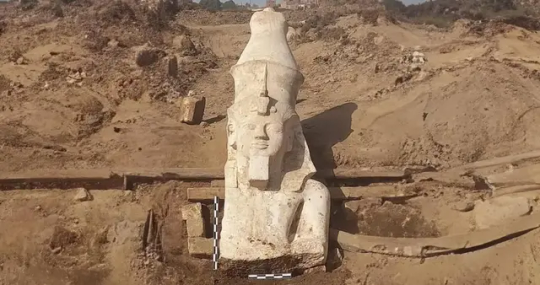
The Long-Lost Top Half of an Enormous Ramses II Statue Found
A German researcher found the lower section of the Egyptian pharaoh’s likeness nearly 100 years ago.
Archaeologists in Egypt have uncovered the upper half of a towering statue of Ramses II, cracking a century-long mystery. Found in the ancient city of Hermopolis (now Ashmunein), the 12.5-foot-tall limestone fragment lines up perfectly with the lower section of a sculpture discovered nearby in 1930.
The ancient statue depicts Ramses in a seated position, adorned with a crown and a headdress topped with a cobra, according to a statement from the Egyptian Ministry of Tourism and Antiquities. The dual crown indicates Ramses’ simultaneous authority over the kingdoms of Upper and Lower Egypt, while the cobra represents royalty, writes the National’s Kamal Tabikha.
The upper area of the back column of the statue is etched with hieroglyphs that list Ramses’ many titles, glorifying the king as “one of ancient Egypt’s most powerful pharaohs,” says Bassem Jihad, head of the excavation team, in the statement, per a translation by Reuters.
Preliminary scans have confirmed that the carved limestone block is a continuation of the lower section of the statue, which was found in the same area in 1930 by German archaeologist Günther Roeder. With its halves combined, the statue would have loomed at a height of nearly 23 feet.
As the third pharaoh of Egypt’s 19th dynasty, Ramses ruled over a sprawling empire that stretched from modern-day Sudan to Syria. During his reign—which spanned 1279 to 1213 B.C.E., making it the second-longest of any Egyptian monarch—he ushered the kingdom into a golden age of power and wealth. Known as Ramses the Great, the pharaoh’s legacy was cemented by a slew of monuments and statues constructed in his name, both during and after his reign.
The joint Egyptian and American dig team originally began its exploration of the Ashmunein area with the goal of discovering a religious complex from Egypt’s New Kingdom era (1550 to 1070 B.C.E.). Though the researchers ultimately stumbled onto something entirely different, they remained pleased with their results.
“Though we have not found the complex we were initially looking for, a statue of such importance is a sign that we are digging in the right place,” Adel Okasha, an antiquities official who oversaw the dig, tells the National.
Next, the team will create a model envisioning what the statue looked like in antiquity, when it was fully intact.
“Not only is it a wonderful opportunity to have a whole other massive statue of the famed king, it also adds to our general understanding and fills gaps in our data on the large corpus of Ramses II’s statuary,” Salima Ikram, an Egyptologist at the American University in Cairo, tells the National. “Through each discovery, we have been able to trace changes in the style during the course of his very long reign.”
By Catherine Duncan.

#The Long-Lost Top Half of an Enormous Ramses II Statue Found#ancient city of Hermopolis#Ramses II#limestone#limestone slabs#ancient artifacts#archeology#archeolgst#history#history news#ancient history#ancient culture#ancient civilizations#ancient egypt#egyptian history#egyptian pharaoh#egyptian art
84 notes
·
View notes
Note
Here is some light pro-Marmont propaganda:
He was a friend of Napoleon's since before he was a general and he accompanied him to Italy,Egypt and the 18th of Brumier
He was successful at Toulon, Matengo and Wagram
During his governing of the Iliriyan provinces he was a HUGE advocate for making the "iliriyan language " (a mix of croatian,slovenian and other Balkan language s) the offical language. He made it so the iliriyan language was offical and used in schools and everyday life but french was only used in legal areas. Just to note this was unheard of in croatian history till this point, the croatian language* was only ever removed and replaced by german or italian by the ruling country/kingdom. Also he was doing this 30 or so years before the croatian national awaking (it's really complicated to explain so I will have to simplify....in the mid 19th century a bunch od croatian writers and poets start "making" the modern croatian language by publishing grammar books, dictionaries,song and so on. Pretty much they were some of the first people to openly advocate for a croatia that embraced it's cultural heritage and language. They called themselves the "Ilirians".) Marmont was doing that before it was cool so I think that earns him some sexyman points.
Dalamtia was a literal s*** hole that was underutilized and forgotten by pretty much everyone (austrians,turks and venitaians). It was pretty much just villages and fields of mud. When the French arrived they built the first roads there (named : the Josephine, the Caroline and the Louisa) under the command of Marmont. These same roads are so good that they are some of the main highways in croatia. But the upgrades didn't stop there, Marmont saw potential and started building theaters and schools in bigger cities. Thus making the worth of the cities bigger. He made such a positive change in Dalmatia,that when the Austrians took back the land after 1813 Francis II/I said:" it's a shame that Marmont didn't stay here for another four or so years. He would've done so much good"
Croatian love this guy SO DAMN MUCH it's actually kinda stupid. In the coastal city of Split (one of the biggest cities in croatia) the biggest tourist destination and most culturally significant street in the whole city is named after him (Marmontova ulica/ Marmonts street). And all over the coastal part of the country you can find monuments and statues dedicated to him (sadly there aren't any OF him)
He wrote a bunch of memoirs about his time in the provinces....and ngl he has a goofy writing style. He just start jumping from topic to topic (thought that was kinda funny)
Accounts of people who saw him during the battle of Paris say that he looked "very dashing and brave sitting straight on his horse and wearing his riding breaches and boots as if he were a young general again".... I mean if his contemporaries thought he was hot (maybe they couldnt see the unibrow?)....that check of one of the sexyman criteria, right?
Thank you for reading this long ass post (I'm sorry I didn't mean to make it so long)
Ps. Sorry for bad grammar or spelling, English ist my first language
*Croatian language- all southeastern European languages where clumped together for most of history, I used the words "Croatian language" to simplify
I'm mesmerized by your url. No better url to interact with this blog.
32 notes
·
View notes
Text
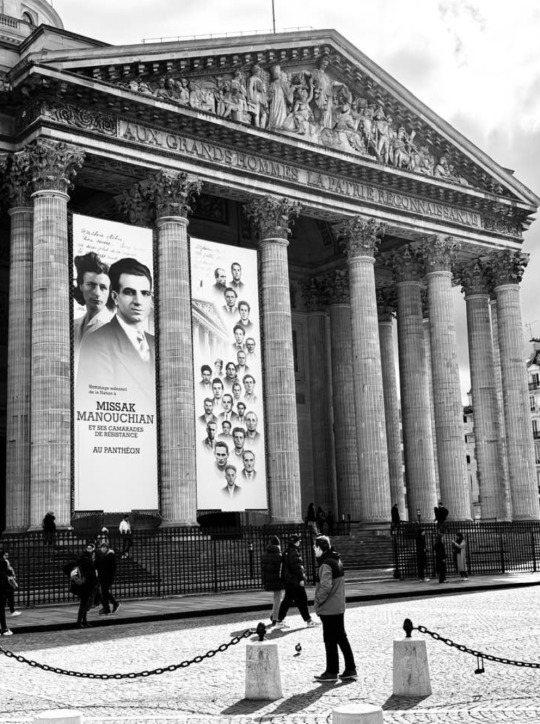
Jeff Pott Panthéon, Paris March, 2024
The Panthéon is the monument in Paris where many of the officially recognized French national heroes are buried. The banner that’s hanging commemorates the re-entombing of Missak Manouchian and his wife, Melinee, in the Panthéon. Missak Manouchian was the leader of the FTP-MOI anti-fascist movement in the city of Paris for most of 1943 until his arrest, along with many of his comrades, in Nov. 1943. All of them were ultimately executed by the Nazis in early 1944.
Manouchian himself was a survivor of the Armenian genocide, as was his wife and colleague, Melinee. They settled in France and quickly fell into Communist circles. When the war came, Missak became the head of the Armenian-language section of the French communist party. Soon, he transferred to the FTP-MOI, a n armed resistance group made up primarily of immigrant laborers. The letters MOI, in fact, are the French initials for the phrase “The Power of Immigrant Labor.” After the capture and murder by the Nazis of Boris Holban, a Russian Jewish immigrant and head of the Parisian FTP-MOI, Manouchian became the leader of that FTP-MOI branch. Manouchian and many of his comrades were captured by the Nazis and 14 of them were tried in a big show trial, rather than simply executed, as the Nazis usually did. Of the 14 tried, most were immigrant Jews, but the anti-fascist fighters also included anti-Nazi German refugees, anti-fascist Italian refugees and refugees Spanish leftists, veterans of the losing Republican side in the Spanish Civil War. The Nazis, trying to whip up antisemitic and anti-immigrant hatred in occupied Paris, plastered the city with posters accusing their victims of being the “Army of Crime.” That backfired completely, as residents of Paris, much to own risk, placed bouquets of flowers below the posters hung on advertising kiosks and pasted to city walls. All of the FTP-MOI members on trial were executed in early 1944. The residents of Paris then took to writing “Mort pour La France” ("Died for France,” the official slogan for those who died fighting in French wars and found on monuments throughout the country, on the posters, again, at great risk to themselves.
It might have taken nearly 80 years, but these heroes of anti-fascist resistance, all of them communists, have now been honored in the Panthéon. Missak and Melinee are buried there and the names of all 14 martyrs are prominently featured by their tombs.
20 notes
·
View notes
Text
Rambling about Hass in Elisabeth for a REALLY long time. TL;DR - yeah, it is necessary as a song...
Because of the costumes and staging people often just see it as "the antisemitism song", which it is, strongly, but I think sometimes the wider context presented therein is ignored. Really, the song shows how antisemitism and hatred are fuelling and entangled with other movements!!
The nationalists in that song come from various groups and social classes, and identify as their enemies:
Socialists
Pacifists
Jewish writers
Jewish women
"Those who are not like us"
Crown prince Rudolf (because of his - historically strong - friendships and other positive associations with Jews)
The Habsburgs as a whole
Elisabeth and her Heinrich Heine (= a Jewish poet) monument project (which also attracted such strong criticism from German nationalists [Austrian Germans who were nationalists, not "Germans" in the modern sense] historically)
Hungary
The "barons" - so the nobility
The "slavic state"
The ongoing "betrayal of the people"
And to contrast, they identify as good:
Strength ("the strong wins, the weak fails", and also "strong leaders") and "purity"
"Unity"
Glory/splendour ("pracht")
Christian values
"Unified Germany", an alliance with Prussia and even an Anschluss (the joining of Austria and other "ethnically German" [so-called] lands to the German Reich. Hmm does anyone remember who also strove for and eventually implemented this... /s)
The conservative Wilhelm II as emperor (again, they want to join Austria into the German Reich)
So like. There is a glorification of all things "German" and of conservative values (religion) and reactionary power politics ("weakness" was and is by similar groups now considered to be a major flaw of liberalism and a liberal world order - in the song, pacifism and socialism are also connected to it), as exemplified by Wilhelm II's Germany specifically. To contrast, racial enemies ("non-Germans") threatening "racial purity" must be eliminated, with violence if necessary. And the Habsburg monarchy, being a multinational empire, is described as immoral and weak because of it being multinational (and the position of Slavs and Hungarians in politics and imperial administration).
The themes of "betraying the people" (Volksverrat) are especially interesting because the enemies of the nationalists as listed in the song, Jewish women, pacifists and socialists, were also the people blamed for German defeat in WW1 (the "stab in the back" at the home front myth). It's overall 19th and 20th century anti-establishment fascist imagery.
Ajdkkf I don't think I'm clearly making my argument but the song's key functions are:
To dispel the myth of the late 19th century being "the good old days", the glory days of Austria before the world wars somehow magically came to happen and ruined it. In fact, the songs shows that the developments leading to the world wars stem from politics and mass movements of hatred that developed alongside and gave power to & drew power from nationalism in the 19th century
To show the audience exactly what Rudolf is talking about in "Die Schatten werden Länger (reprise)". What is the "evil that is developing"? It's not Rudolf's personal petty wish for more power, or his angst about not being emperor yet, or some generic amorphous disdain for how FJ is reigning; it's not the lack of Hungarian independence either, for god's sake. I will die on this hill, if you cut Hass or replace it with conspiracy or whatever you can cut Rudolf as well, Elisabeth as a show is (in my opinion) a good portrayal of him precisely because it depicts him as a political thinker (in contrast to many depictions and post-Mayerling accounts which diminish that and just talk about Mayerling and his "immorality" - a talking point devised by the nationalists and antisemitists who hated him lol, liberal politics were connected to lack of morality) and someone who, unlike most of his contemporaries, saw that antisemitism, emphasis on "power" and realist power politics, exclusionary/hateful rhetoric and excess nationalism would lead to ruin. AND Hass also shows that he was hated by the German nationalists for this! As was his mother, for her sympathy to Heine...
To connect genuine popular dissatisfaction (from Milch - Hass is a reprise of Milch in terms of rhythm and the call-and-response structure where Lucheni talks to the crowd) with inequality, the lack of democracy and the excesses of royalty... to the rise and presentation of fascism as a "solution"
To show that 19th century nationalism was, in many ways, exclusionary, antisemitic, racist and "war-mongering", and that this rhetoric is old - not somehow magically appearing for WW2 and then disappearing again - and will time and again rise... and that it's everyone's responsibility to recognise it for what it is when it happens, if we are to have a reasonable, decent world to live in.
The framing of Hass sometimes confuses people I will never recover from that one post cancelling Elisabeth das musical for being antisemitic because Hass exists ajiddfkdllfgl what's next, it's pro-suicide and homophobic because a character technically dies from being gay? but to me it's rather clear that it's unsympathetic lol, with the whole doomsday atmosphere (no music, just footsteps/marching and drums and screaming, it's meant to be threatening), the way the ensemble harshly criticises the most sympathetically portrayed characters we have seen so far (Elisabeth and Rudolf) for things that seem petty and harmless (having Jewish friends), and the extremely direct comparison drawn to N*zism (to indicate what such a movement would develop to) in many stagings. I don't know how to say this but somehow I've always assumed that "H*tler and n*zism = evil" is EXTREMELY common knowledge and it mystifies me when people like. Think it should have been stated more clearly in the show. Like, the show is working off the assumption that you know what it is and that it's bad because of the millions and millions of people they killed............. this is EXTREMELY common knowledge in Europe, not least in Germany and Austria lol.
So um yeah akwkldlf, sorry for the ramble, I just feel like the song can be poorly understood and criticised on shaky ground sometimes. I mean, I am not Jewish and not equipped to talk about whether it's triggering or traumatising to watch especially with lived or family experience of antisemitic violence... But I think for non-Jewish people there is a huge responsibility to be aware and vigilant of antisemitism, historically and in the present, and sometimes it needs to be hammered home for people to understand...
By that last point I also somewhat mean... I think you don't "get" to be triggered by it if you're not Jewish but perhaps otherwise affected by politics of hatred. Of course I'm not emotions police lol, but many Jewish people have intergenerational trauma AND have to live with extremely similar antisemitic rhetoric and culture to this day, so there I understand criticisms - and there is also a discussion to be had about how and to what extent it is ok to use and display Jewish suffering as a device to educate non-Jewish people.
But anyway, to my original point. This is something I've seen people say and I just... if you're queer and it makes you uncomfortable to see Hass because modern n*zis hate you and it's traumatic, I mean, it's valid to feel uncomfortable and you can choose not to watch it personally to avoid being triggered, but you don't get to call for it to be erased from the show for "problematic content" or for "escapism" or to make you feel better. It is there because the destruction of the 19th century world, and Rudolf's and Elisabeth's suffering, is intrinsically tied to the rise of such hateful politics and without that being shown there is no show. You don't get to make it something it's not, this show is not ONLY an epic gothic romance with imaginary boyfriend, it's a commentary on past, present and future politics in that it shows the dangers of conservatism, antisemitism, racism and illiberalism. Calling for or supporting censorship, or state emphasis on militarism/"destroying the enemy", or advocating hatred, violence or oppression against any group based on ethnicity, religion, race, political views, etc. are all political stances held by and propagated by various people today in various political contexts. And you are not immune to antisemitism or reactionary nationalism if you're queer or whatever, so you have the constant responsibility to think critically about your worldview and your politics!!
23 notes
·
View notes
Text

Niederwald national monument in Hesse, Germany
German vintage postcard
#historic#monument#photography#vintage#national#sepia#photo#briefkaart#hesse#ansichtskarte#niederwald#postcard#germany#postkarte#postkaart#carte postale#german#ephemera#postal#tarjeta
2 notes
·
View notes
Text
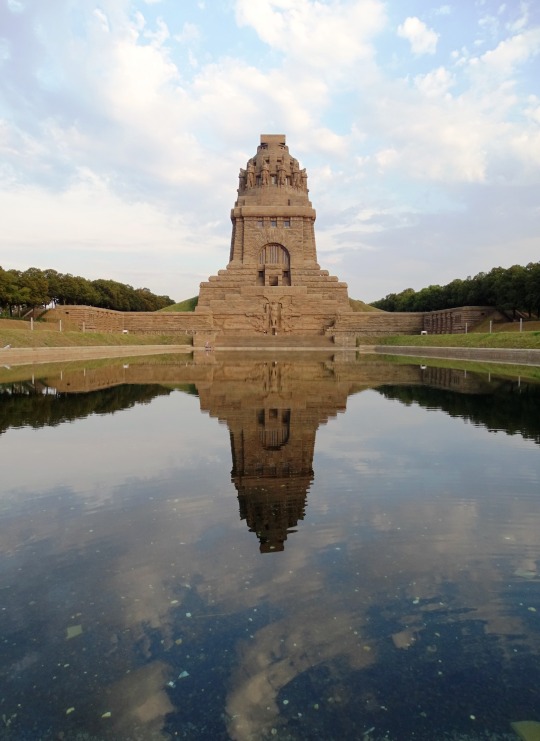
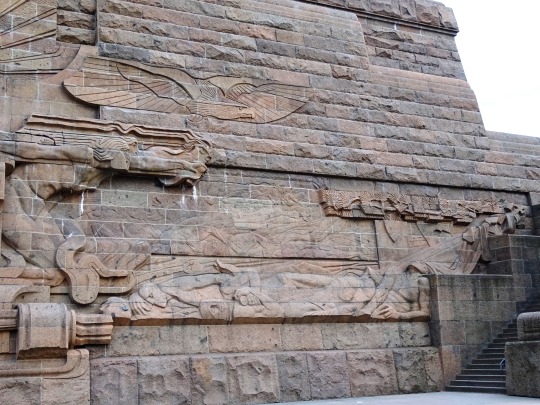
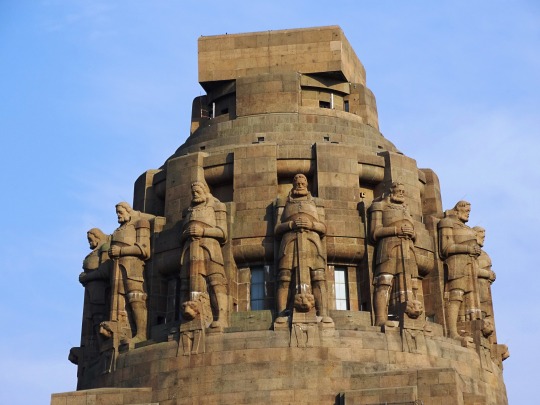
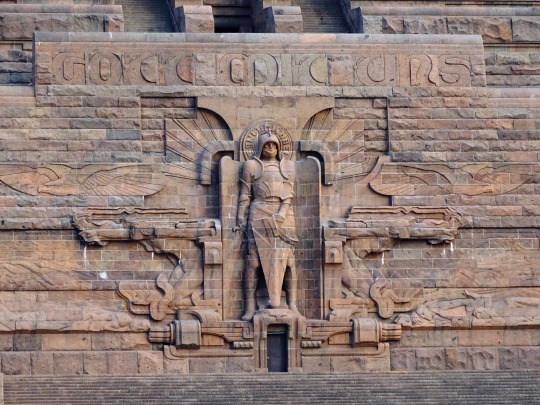
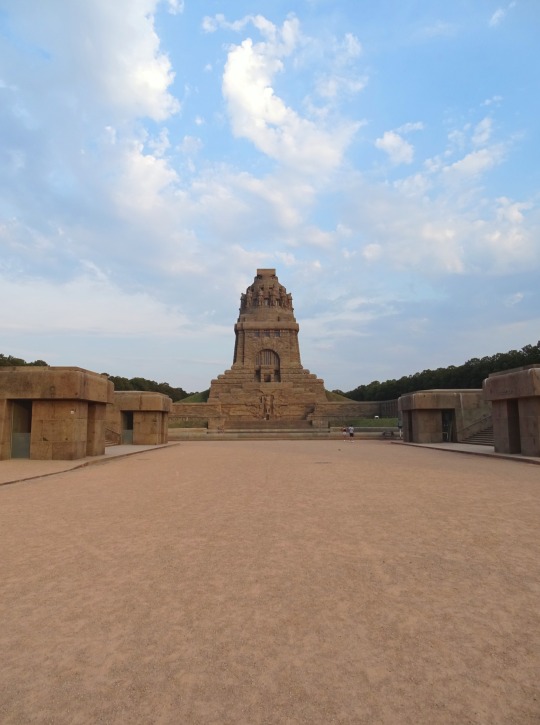
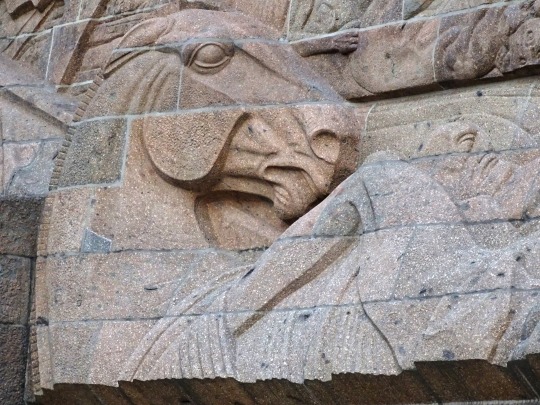
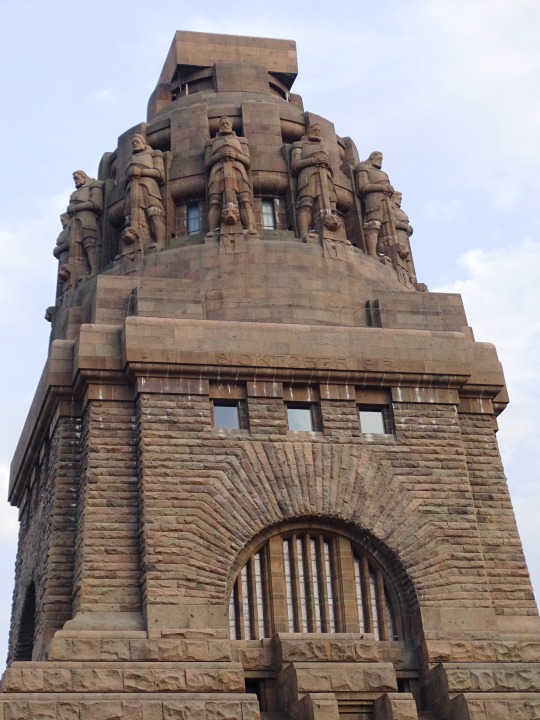
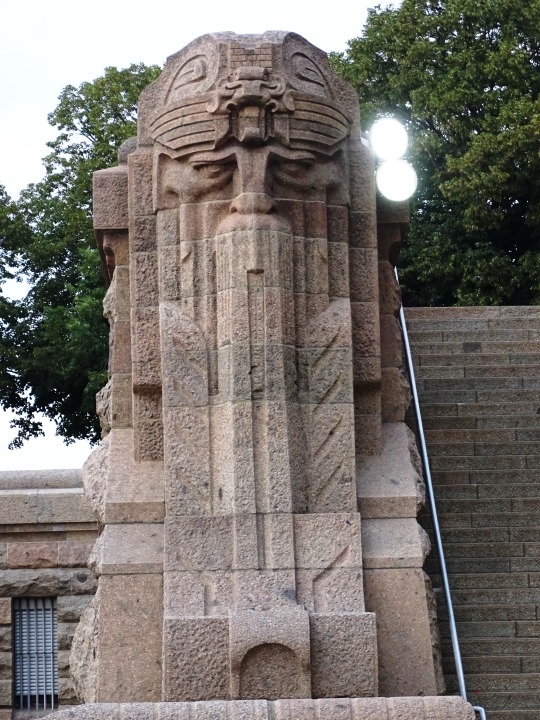
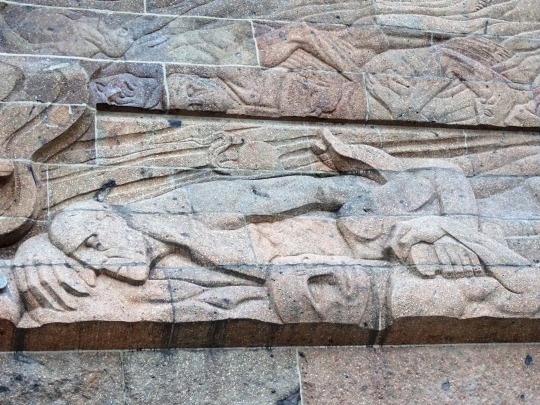
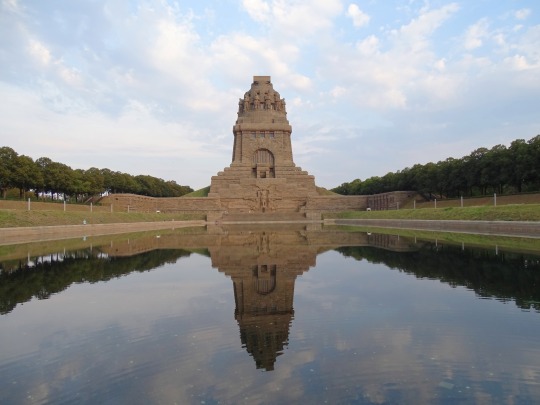
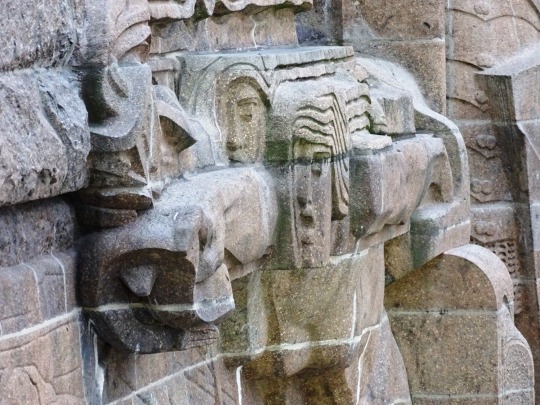
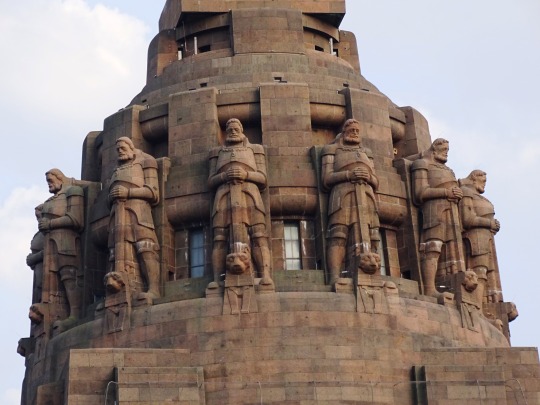
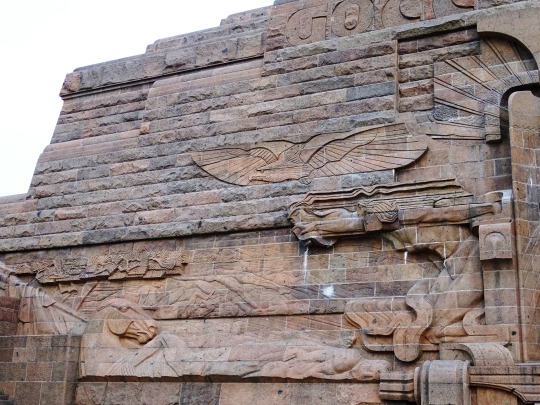
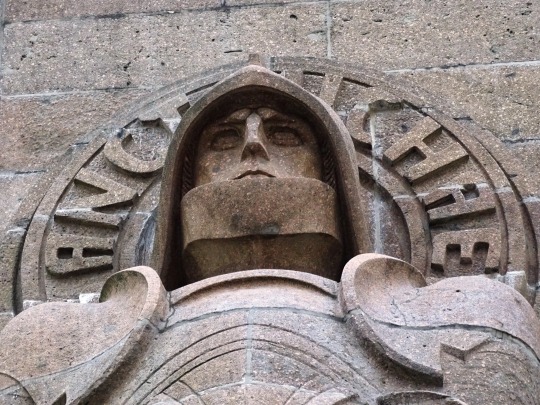

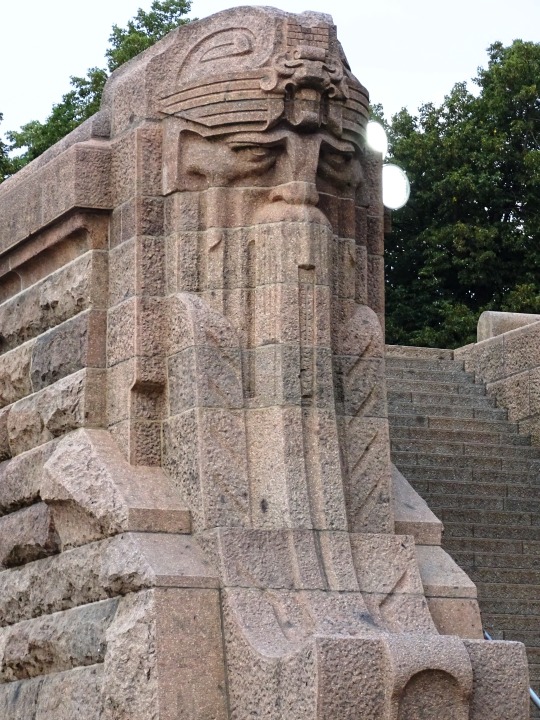
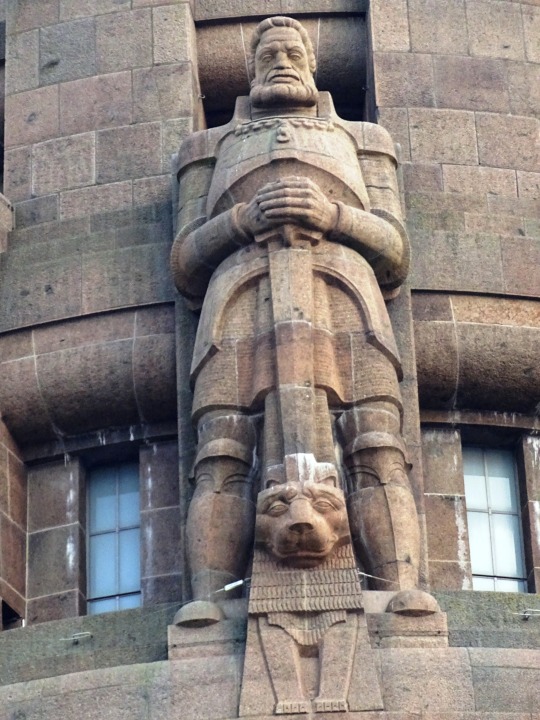
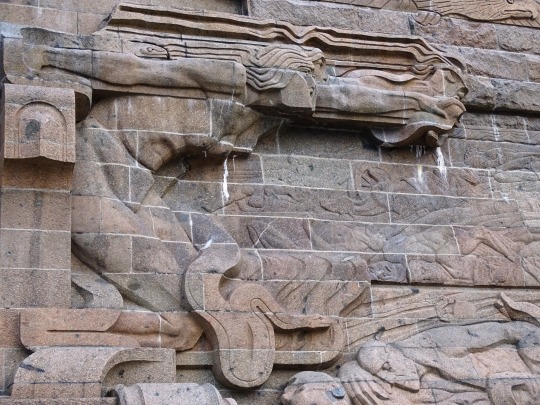
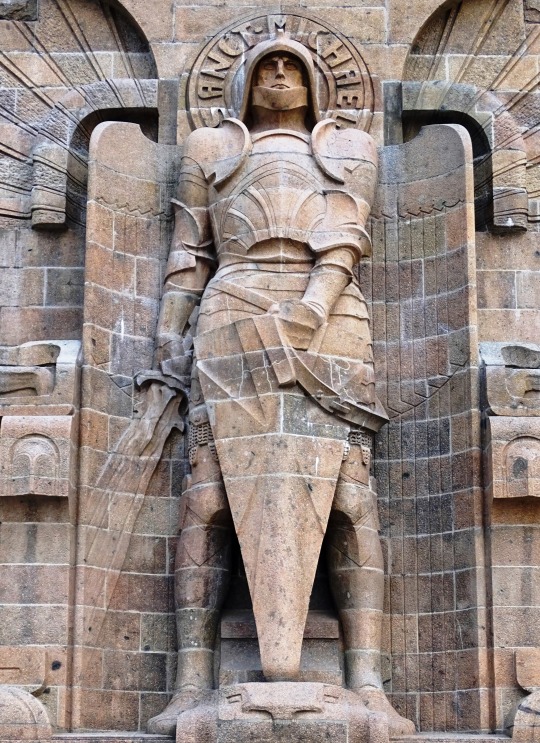
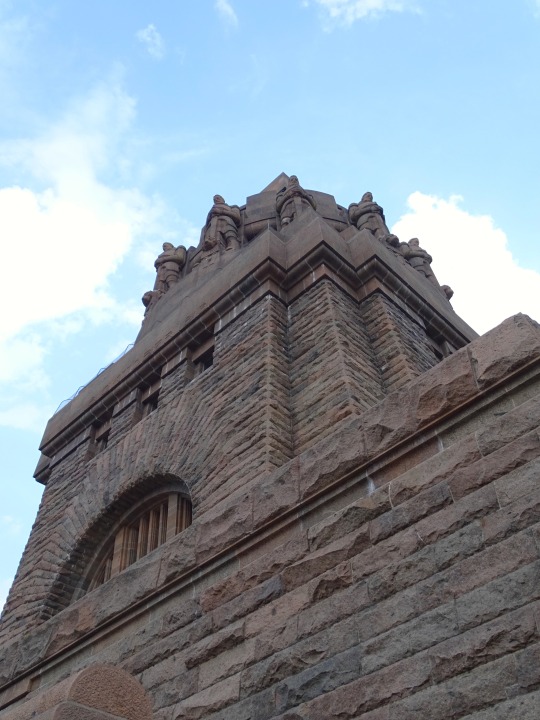
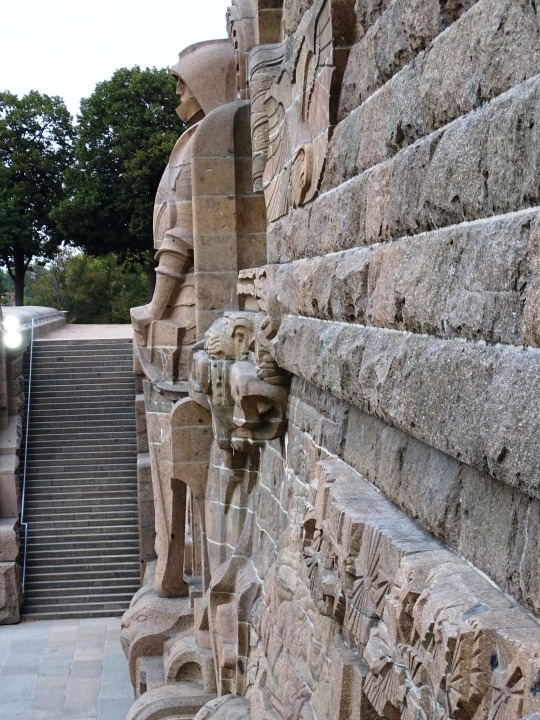
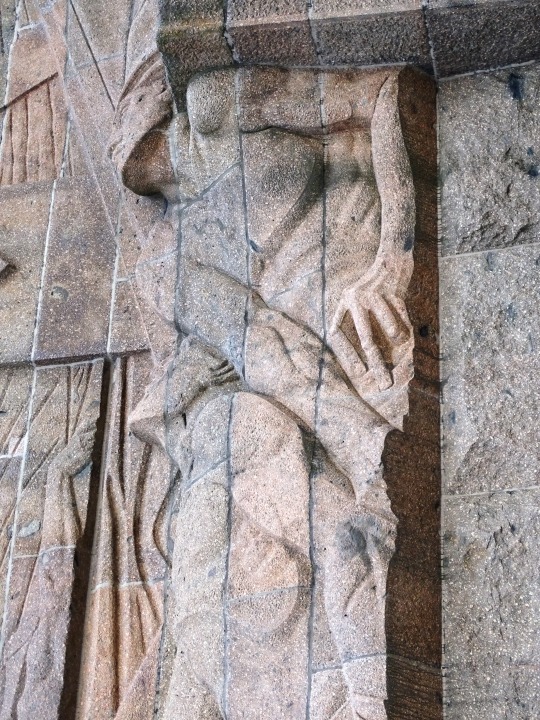
Bruno Schmitz died on April 27, 1916.
#Bruno Schmitz#Monument to the Battle of the Nations#died#death#Leipzig#Völkerschlachtdenkmal#summer 2020#Germany#Saxony#Sachsen#travel#architect#Archangel Michael#See der Tränen#Reflecting Pool#cityscape#architecture#tourist attraction#landmark#Deutschland#exterior#evening light#Christian Behrens#detail#public art#German history#anniversary#original photography#vacation#27 April 1916
3 notes
·
View notes
Text
An Oakville cemetery is once again facing calls to remove a monument that pays tribute to a Ukrainian unit that was recently thrust into the spotlight when controversy erupted over a decision to honour one of its veterans in the House of Commons.
The monument in question is located within West Oak Memorial Gardens, a 100-acre cemetery at 1280 Dundas St. W. that is owned and operated by St. Volodymyr Ukrainian Cemetery. In 1988, a large statue commemorating what is known as the First Ukrainian Division of the Ukrainian National Army was erected at the burial ground, which is the largest Ukrainian cemetery in Canada.
Yaroslav Hunka, the 98-year-old Ukrainian man at the centre of this controversy, served in that military unit, which was founded in 1943 and is also known as the Waffen-SS Galicia Division and the SS 14th Waffen Division. This unit was a Second World War Nazi German military formation made up of mostly Ukrainian volunteers and fought in Ukraine, Poland, Slovakia, and the former Yugoslavia. It was disbanded in 1945.
Continue Reading.
Tagging: @politicsofcanada
76 notes
·
View notes
Text
The 1936 Olympics

These are some facts and curiosities about the 1936 Olympics:
Nazi Germany used the 1936 Olympic Games as a propaganda tool. The Nazis promoted the image of a new, united and strong Germany, while masking the regime's anti-Semitic and racist policies, as well as its growing militarism.
Slowing down its anti-Semitic program and its expansionist aims, the Nazi regime exploited the Games to dazzle many of the spectators and foreign journalists present, proposing the image of a tolerant and peaceful Germany.
The choice of the International Olympic Committee to hold the games in Berlin was a clear signal of Germany's return to the international community, after its isolation in the period following its defeat in the First World War.
Several movements to boycott the Games were created in the United States, Great Britain, France, Sweden, Czechoslovakia and the Netherlands.
The Nazis meticulously prepared the games: A huge sports complex was built and the Olympic flags, along with the national ones with the swastika, covered the monuments and buildings of Berlin.
Forty-nine teams of athletes from all over the world took part in the Berlin Olympics, more than in any previous edition.
Germany advertised the games skillfully, using brightly colored posters and illustrated articles that appeared in several magazines. Those sporting images aimed to create a direct link between Nazi Germany and ancient Greece, visually representing the Nazi myth that superior German civilization was the rightful heir of ancient classical culture.
The propaganda effort continued well after the end of the Olympics, notably with the international launch of the film “Olympia” in 1938.
Germany emerged victorious from the Eleventh Olympics. German athletes won most of the medals and German hospitality won applause from the visitors.
Only some journalists, such as William Shirer, understood that the splendor exhibited in Berlin was nothing more than a facade to cover a violently oppressive and racist regime.
Sources:
The United States Holocaust Memorial Museum
Wikipedia: The 1936 Olympics
I DON'T SUPPORT NAZISM,FASCISM OR ZIONSIM IN ANY WAY, THIS IS AN EDUCATIONAL POST
41 notes
·
View notes
Text
Colleague invited me and some of my other colleagues to her son’s Wedding Dinner at Goodwood Park Hotel (良木园酒店) last Saturday. The heritage hotel in Singapore is situated in a 6-hectare landscaped garden on Scotts Road. It was first built as the club house for the Teutonic Club serving the expatriate German community in Singapore and later converted into a hotel. The Tower Block of the hotel has been gazetted as a national monument of Singapore.


Have a peek at the Dinner Menu and Wedding Favours which is a heart-shaped condiment bowl or a round bottle opener. My trio of drinks from left - orange crush, Chinese tea and red wine, along with condiments of three types of chilli – pickled green chilli, chilli sauce and red chilli in soya sauce. One of my colleagues was already red-faced and half-drunk even before dinner was officially served.



Let’s start off with the Appetizer Platter comprising of five smaller dishes. From the bottom clockwise, we have the golden brown Suckling Pig Slices with crispy skin. Happy to say that the roasted piglet did not disappoint, after all I expect no less from a 5-star hotel.


Up one dish partition is the Chilled Marinated Baby Abalone with Thai Sweet Chilli. While the spicy and sweet abalones were good, the mountain of raw shallots used to prop up the mollusks were too pungent to eat on its own.

I have never seen unagi as part of the cold dish platter but this Teriyaki Eel was a delight to devour. With hint of charred smokiness, this freshwater eel was sweet and soft. Crispy Sesame Seafood Roll was the next dish I tried and it was still warm and shattering crispy with filling of crunchy prawns and other bits of seafood inside.


Sliced Smoked Duck was served with drizzling of diced mango & spicy plum sauce. The tangy and fruity sweet sauce paired well with the savoury smoked duck breast. Overall to say, this is the best appetizer platter I have ever eaten.

#Goodwood Park Hotel#良木园酒店#Scotts Road#Wedding Dinner#Wedding Favours#Red Wine#Appetizer Platter#Suckling Pig#Marinated Baby Abalone#Onions#Teriyaki Eel#Unagi#Crispy Sesame Seafood Roll#Smoked Duck#Mango#Plum Sauce#Seafood#Food#Buffetlicious
23 notes
·
View notes
Text
Poem for July 4, 1994 - Sonia Sanchez
It is essential that Summer be grafted to
bones marrow earth clouds blood the
eyes of our ancestors.
It is essential to smell the beginning
words where Washington, Madison, Hamilton,
Adams, Jefferson assembled amid cries of:
"The people lack of information"
"We grow more and more skeptical"
"This Constitution is a triple-headed monster"
"Blacks are property"
It is essential to remember how cold the sun
how warm the snow snapping
around the ragged feet of soldiers and slaves.
It is essential to string the sky
with the saliva of Slavs and
Germans and Anglos and French
and Italians and Scandinavians,
and Spaniards and Mexicans and Poles
and Africans and Native Americans.
It is essential that we always repeat:
we the people,
we the people,
we the people.
2.
"Let us go into the fields" one
brother told the other brother. And
the sound of exact death
raising tombs across the centuries.
Across the oceans. Across the land.
3.
It is essential that we finally understand:
this is the time for the creative
human being
the human being who decides
to talk upright in a human
fashion in order to save this
earth from extinction.
This is the time for the creative
Man. Woman. Who must decide
that She. He. Can live in peace.
Racial and sexual justice on
this earth.
This is the time for you and me.
African American. Whites. Latinos.
Gays. Asians. Jews. Native
Americans. Lesbians. Muslims.
All of us must finally bury
the elitism of race superiority
the elitism of sexual superiority
the elitism of economic superiority
the elitism of religious superiority.
So we welcome you on the celebration
of 218 years Philadelphia. America.
So we salute you and say:
Come, come, come, move out into this world
nourish your lives with a
spirituality that allows us to respect
each other's birth.
come, come, come, nourish the world where
every 3 days 120,000 children die
of starvation or the effects of starvation;
come, come, come, nourish the world
where we will no longer hear the
screams and cries of womens, girls,
and children in Bosnia, El Salvador,
Rwanda...AhAhAhAh AHAHAHHHHHH
Ma-ma. Dada. Mamacita. Baba.
Mama. Papa. Momma. Poppi.
The soldiers are marching in the streets
near the hospitals but the nurses say
we are safe and the soldiers are
laughing marching firing calling
out to us i don't want to die i
am only 9 yrs old, i am only 10 yrs old
i am only 11 yrs old and i cannot
get out of the bed because they have cut
off one of my legs and i hear the soldiers
coming toward our rooms and i hear
the screams and the children are
running out of the room i can't get out
of the bed i don't want to die Don't
let me die Rwanda. America. United
Nations. Don't let me die..............
And if we nourish ourselves, our communities
our countries and say
no more hiroshima
no more auschwitz
no more wounded knee
no more middle passage
no more slavery
no more Bosnia
no more Rwanda
No more intoxicating ideas of
racial superiority
as we walk toward abundance
we will never forget
the earth
the sea
the children
the people
For we the people will always be arriving
a ceremony of thunder
waking up the earth
opening our eyes to human
monuments.
And it'll get better
it'll get better
if we the people work, organize, resist,
come together for peace, racial, social
and sexual justice
it'll get better
it'll get better.
---------
thanks to my pal Jimmy for the poem
7 notes
·
View notes
Text
Francis Kinloch in Müller's letters to his family: Part 4
These extracts are from Johannes von Müller: Sämmtliche Werke, volume 7 (1810).
My translations here (with added paragraph breaks for legibility), original German transcriptions below the cut. This is the queerest part yet.
29 July 1776, to his father
The first cause of my silence, l. P.,* is that my regulated life really leaves me with little to write about; the other: that I am very busy. I read for a few hours with my friend, and that is almost the only time that I can devote to reading.
*For “lieber Papa”, “dear father”.
10 Oct 1776, to his father
You can guess the reason for my long silence, dearest father; when one is labouring on an important work, one becomes this work entirely; and in addition I finished a few more books with my friend Kinloch.
[...] A book seller from Neuchatel, Mrs B and I have convinced Mr B to put together a collection of his works. On account of this opportunity, he is working through all of them, and making additions and changes. Since he is not allowed to read himself, he wished to go through these writings with a friend who was already familiar with the contents. To that end, this summer we often read these and other writings for 2 – 3 hours a night in Mr Kinloch’s presence.
[...] My friend K is going to Italy. It is difficult; but the North American war and my work, which would be too disrupted, prevent me from accompanying him. This letter is not long enough to express to you how painful parting from him the day after tomorrow* will be for me.
[...] The loss of my friend makes me sad. Luckily, Kinloch is mine in every part of the world; our persons may be separated, but not our minds; I should care more about his perfection than about his presence; one day, in the long career that according to nature is open to us, we may well find ourselves together again**
*This places Kinloch’s departure for Italy on 12 October 1776.
**Original annotation: This friendship with Mr Kinloch remained unabated until Müller’s death. He received letters from him even in Cassel.
24 Dec 1776, to his brother
For myself, I seek nothing except that independence, which I consider to be the highest good of a human being, which I now enjoy, and will always enjoy through the generosity of my friend Kinloch and through the sciences.
Then I write my letters, rarely any others (except letters concerning business) besides those to my two friends, Bonstetten and Kinloch.
[...]Mr Kinloch sees Italy with the eyes of a man devoted to great occupations, with the sensitivity of a friend of antiquity and the fine arts. His letters are a diary of everything he sees, hears and feels. Through him and that other friend, I know Italy better than almost any other country.
April 1777, to his brother
When you wrote to him, I was in Lyon. My friend Kinloch, when he returned from Italy, wrote to me to find me at the lake below Genthod on a specific day, because he wanted to visit me; I however could not wait for him and took a cabriolet. I met him three hours from Geneva. He stayed with me for three or four days.
He strengthened his admiration for the monuments of the ancients when he saw them; his love of free government when he saw the current state of the nation and the constitution; and through everything, history, art and intercourse, he strengthened his noble desire for rightful fame and great virtues: and as he saw so many others, he learned to estimate my friendship even more highly. And it really seems to me that we loved each other ten times more during these few posts, and the purpose of our friendship is always our mutual perfection; nor does Kinloch want any other friend, and I do not want any others besides Bonstetten and him.
When he left Genthod and we had read and spoken a lot together, it was not possible for me to watch him go; so I went to Lyon. [...] I am never happier or healthier, nor do I think more clearly or feel more vividly, than when I am travelling; hence, I made a lot of observations and at the same time did a lot of work, both with my friend and after we left Lyon - at the same hour but by different routes - and I drove back.
I read everything to him that I had drafted about Switzerland over the winter, then we read several works by Juvenal with endless pleasure, from which I am also learning several parts by heart, and then we read about the countries that we had seen, besides many chapters from Montaigne, whose masterwork is the chapter on friendship*
*Michel de Montaigne’s famous essay De l’amitié (On friendship) was written after the death of his beloved friend Etienne de la Boétie. Montaigne posits that a person can only have very few - or even just one - true friends, a position based on his profoundly deep love for Boétie, whose death just four years into their acquaintance devastated him. Müller and Kinloch would have seen a close mirror of their own relationship in this, built as both were on intellectual pursuits and mutual self-improvement, and with a subtle but present homoromantic undertone. Read an English translation of the essay here, where Montaigne outs himself as team-Achilles-was-the-bottom.
4 Sept 1779, to his brother
It was with unspeakable pleasure that I received news from Kinloch a few days ago that, after feeling forced by mortal danger to take up arms for Carolina, he had distinguished himself so much as aide-de-camp in Georgia and Carolina under General Moultrie that, in a letter to the Congress, the general named him a very brave youth and the pride of his fatherland, and this was printed in the newspaper. This fame that my friends acquire is a powerful spur for me.
29 July 1776, to his father
Die erste Ursache meines langen Stillschweigens, l. P. ist, daß mein einförmiges Leben mir wirklich wenig zu schreiben darbietet; die andere: daß ich sehr beschäftiget bin. Ein paar Stunden lese ich mit meinem Freund, und das ist fast die einige Zeit, welche ich der Lecture widmen kann.
10 Oct 1776, to his father
Die Ursache meines langen Stillschweigens errathet ihr, liebster Papa; wenn man an einem wichtigen Werk arbeitet, so ist man ganz dieses Werkes; und denn vollendete ich mit meinem Freund Kinloch noch einige Bücher.
[...] Ein Buchhändler von Neufchatel, Frau B. und ich haben Herrn B. zu einer Sammlung seiner somtlichen Werke vermocht. Bei dieser Gelegenheit durchsieht er sie alle, und macht Zusäße und Veränderungen. Da er selbst nicht lesen darf, so wünschte er mit einem Freund diese Schriften zu durchgehen, dem zugleich der Inhalt geläufig wäre. Zu dem Ende haben wir diesen Sommer oft 2 – 3 Stunden des Abends diese und andere Schriften in Herrn Kinlochs Gegenwart gelesen.
[...] Mein Freund K. geht nach Italien. Es ist hart; aber der nordamerikanische Krieg und mein Werk, welches zu sehr unterbrochen worden wäre, verhindern mich ihn zu begleiten. Dieser Brief ist nicht lang genug, um Euch, auszudrücken, wie schmerzlich mir übermorgen dieser Abschied seyn wird.
[...] Der Verlust meines Freundes macht mich traurig. Zum Glück ist Kinloch in allen Welttheilen mein; unsere Personen mögen getrennt werden, aber nicht unsere Gemüther; seine Vervollkommnung soll mir mehr am Herzen liegen, als seine Gegenwart; endlich in der langen Laufbahn, welche der Natur nach uns offen ist, mögen wir uns wohl zusammen finden *..
* Diese Freundschaft mit Herrn Kinloch blieb ungeschwacht bis zu Müllers Tode. Er erhielt zu Cassel noch Briefe von ihm.
24 Dec 1776, to his brother
Für mich selbst suche ich nichts, als jene Unabhängigkeit, welche ich für das höchste Gut eines Menschen halte, deren ich nun genieße, und durch den Edelmuth meines Freundes Kinloch und durch die Wissenschaften allezeit genießen werde.
Alsdann schreibe ich meine Briefe, selten andere (außer Briefe die Geschäfte betreffen) als an meine zwei Freunde, Bonstetten und Kinloch.
[...]Herr Kinloch sieht Italien mit den Augen eines Mannes, der sich den großen Geschäften widmet, mit der Empfindlichkeit eines Freundes der Alten und der schönen Künste. Seine Briefe sind das Tagbuch alles dessen, was er sieht, hört und fühlt. Durch Ihn und jenen andern Freund kenne ich Italien genauer als fast kein anderes Land.
April 1777, to his brother
Als du ihn schriebest, war ich zu Lyon. Mein Freund Kinloch, als er aus Italien zurückkam, schrieb mir an einem gewissen Tag mich am See unter Genthod zu finden, weil er mich besuchen wolle; ich konnte ihn aber nicht erwarten und nahm ein Cabriolet. Drei Stunden von Genf traf ich ihn an. Drei oder vier Tage blieb er bei mir. Er hatte sich beim Anblick der Denkmale der Alten in der Bewunderung derselben, bei Ansicht des heutigen Zustandes der Nation und der Verfassungen in der Liebe freier Regierung, durch alles, Historie, Künste und Umgang in der edlen Begierde verdienten Ruhms und großer Tugenden bestärkt: auch da er so viele andere gesehen hatte, hatte er meine Freundschaft noch höher schätzen gelernt. Und es scheint mir würklich, wir haben einander zehnmal lieber gewonnen in diesen wenigen Lagen, und der Zweck unserer Freundschaft ist allezeit unsere wechselseitige Vervollkommnung; auch will Kinloch keinen andern Freund, ich will auch keinen außer Bonstetten und ihn. Als er Genthod verließ und wir vieles gelesen und gesprochen hatten, war mir nicht möglich, ihn abreisen zu sehen; also ging ich auf Lyon. [...] Niemals bin ich freudiger noch gesünder, auch denke ich nie heller noch empfinde lebhafter, als wann ich reise; daher ich eine Menge Beobachtungen gemacht und zugleich sowohl mit meinem Freund, als nachdem wir Lyon zu gleicher Stunde, aber auf verschiedenen Wegen, verlassen und ich zurückfuhr, sehr viel gearbeitet habe. Ihm las ich alles, was ich diesen Winter über die Schweiz abgefaßt hatte, dann lasen wir mit unendlichem Vergnügen verschiedene Stücke im Juvenalis, aus welchem ich auch mehreres auswendig lerne, und dann lasen wir über die Länder, die wir sahen, nebst vielen Kapiteln im Montaigne, dessen Meisterstück das Kapitel von der Freundschaft ist;
4 Sept 1779, to his brother
Vor wenigen Tagen habe ich mit unsäglichem Vergnügen von Kinloch Nachricht bekommen, daß, nachdem er sich durch Lebensgefahr gezwungen gesehen, für Carolina die Waffen zu ergreifen, er unter General Moultrie als Aide de Camp in Georgien und Carolina sich so sehr ausgezeichnet, daß er von dem Feldherrn in einem Brief an den Congreß ein sehr tapferer Jüngling und eine Ehre seines Vaterlandes genannt worden ist, welches gedruckt worden. Dieser Ruhm, den meine Freunde erwerben, ist für mich ein gewaltiger Sporn.
4 Sept 1779, to his brother
Vor wenigen Tagen habe ich mit unsäglichem Vergnügen von Kinloch Nachricht bekommen, daß, nachdem er sich durch Lebensgefahr gezwungen gesehen, für Carolina die Waffen zu ergreifen, er unter General Moultrie als Aide de Camp in Georgien und Carolina sich so sehr ausgezeichnet, daß er von dem Feldherrn in einem Brief an den Congreß ein sehr tapferer Jüngling und eine Ehre seines Vaterlandes genannt worden ist, welches gedruckt worden. Dieser Ruhm, den meine Freunde erwerben, ist für mich ein gewaltiger Sporn.
11 notes
·
View notes